When I was fortunate enough to be included in this project at its onset in late 2014, I had just started dipping my toe into family documentary waters. I had been “documenting” my daughter for 5 years by that point, but without any specific intention. I had no idea, at the time, how many changes the next four years would bring personally, nor how those images for Sham of the Perfect, and for my 2.5 year 365 project (which was inspired by Sham) would end up meaning to me.
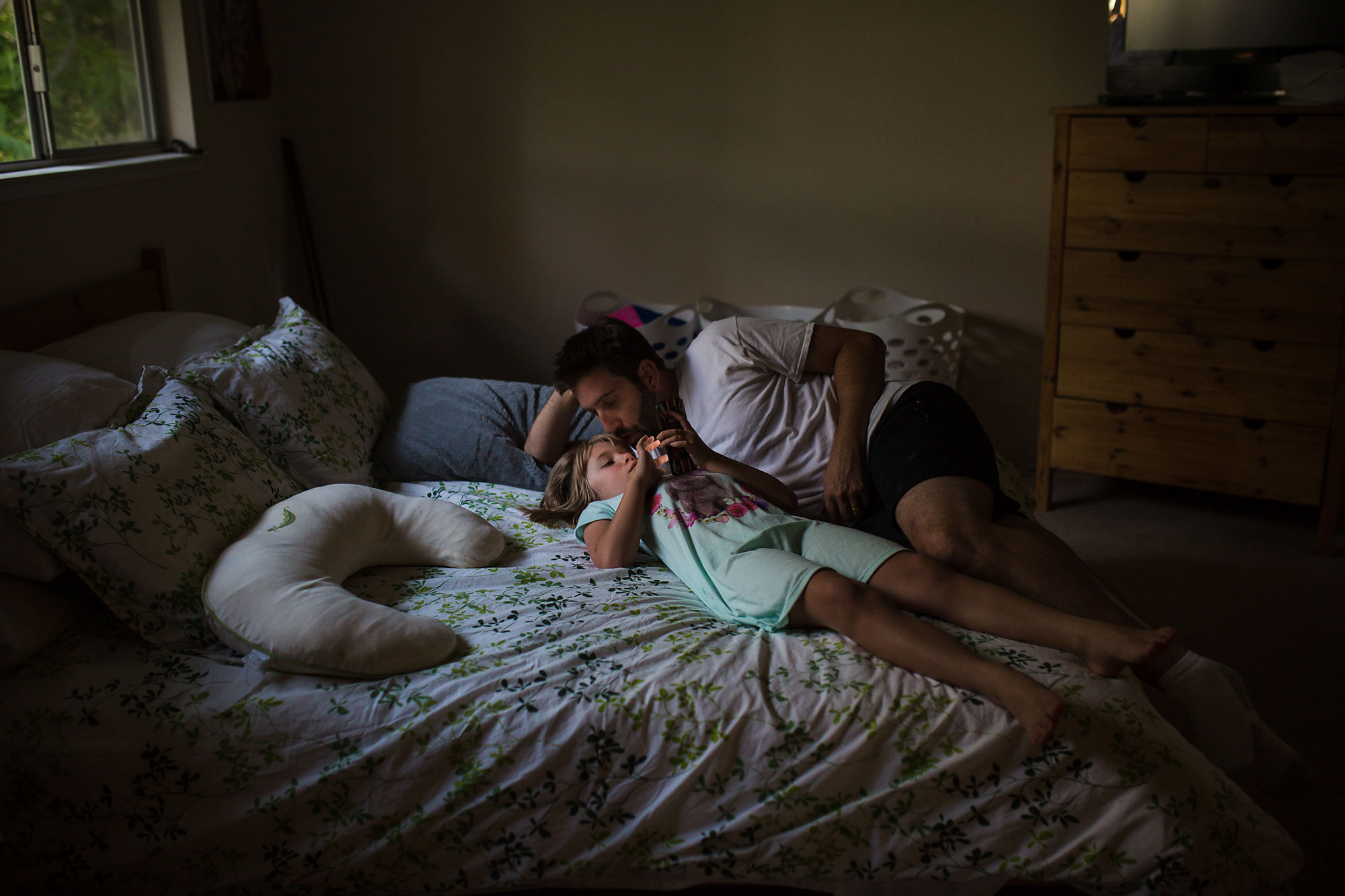
In 2014 I was married, a full-time photographer, with a 5-year-old daughter. Five years later, I am divorced with a full-time corporate job, a 10-year-old, and managing photography on the side, as time allows.
Those hundreds upon hundreds of images I have of our family life as one unit vs. two homes are now important memories of a life we no longer have. That sounds melancholy and, in some ways, I guess it is. But our little family has done a very good job of making it work after a decision we hoped never to have to make; so I don’t see these images with grief or loss, but simply with gratitude that I captured them. I read once that we lose most of our childhood memories before the age of seven. To whatever extent that is true, my daughter will end up with fewer memories of her life with us as a united family than she will of our life as a separated one. I am grateful that I have these photos to fill in those gaps.
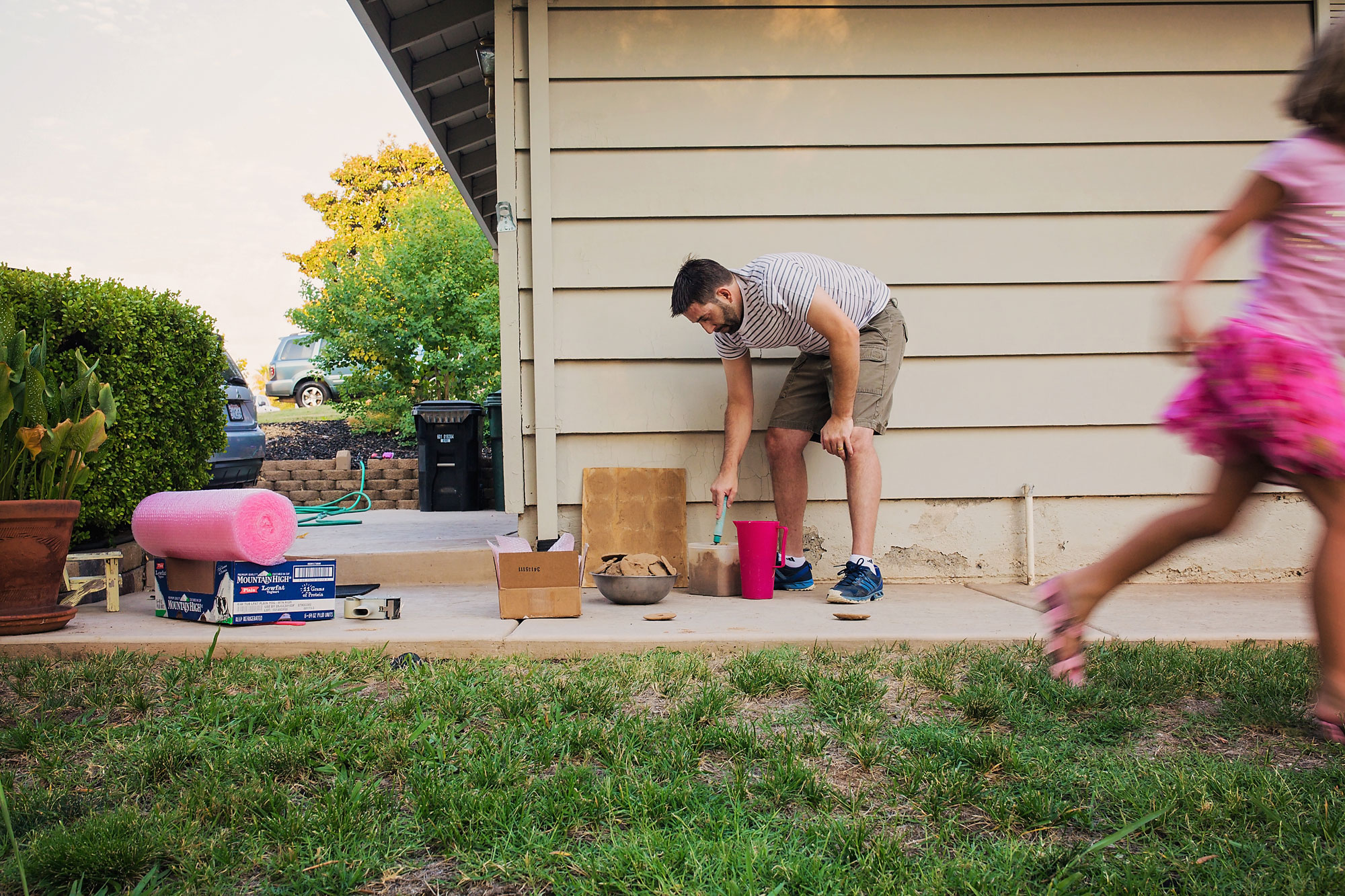
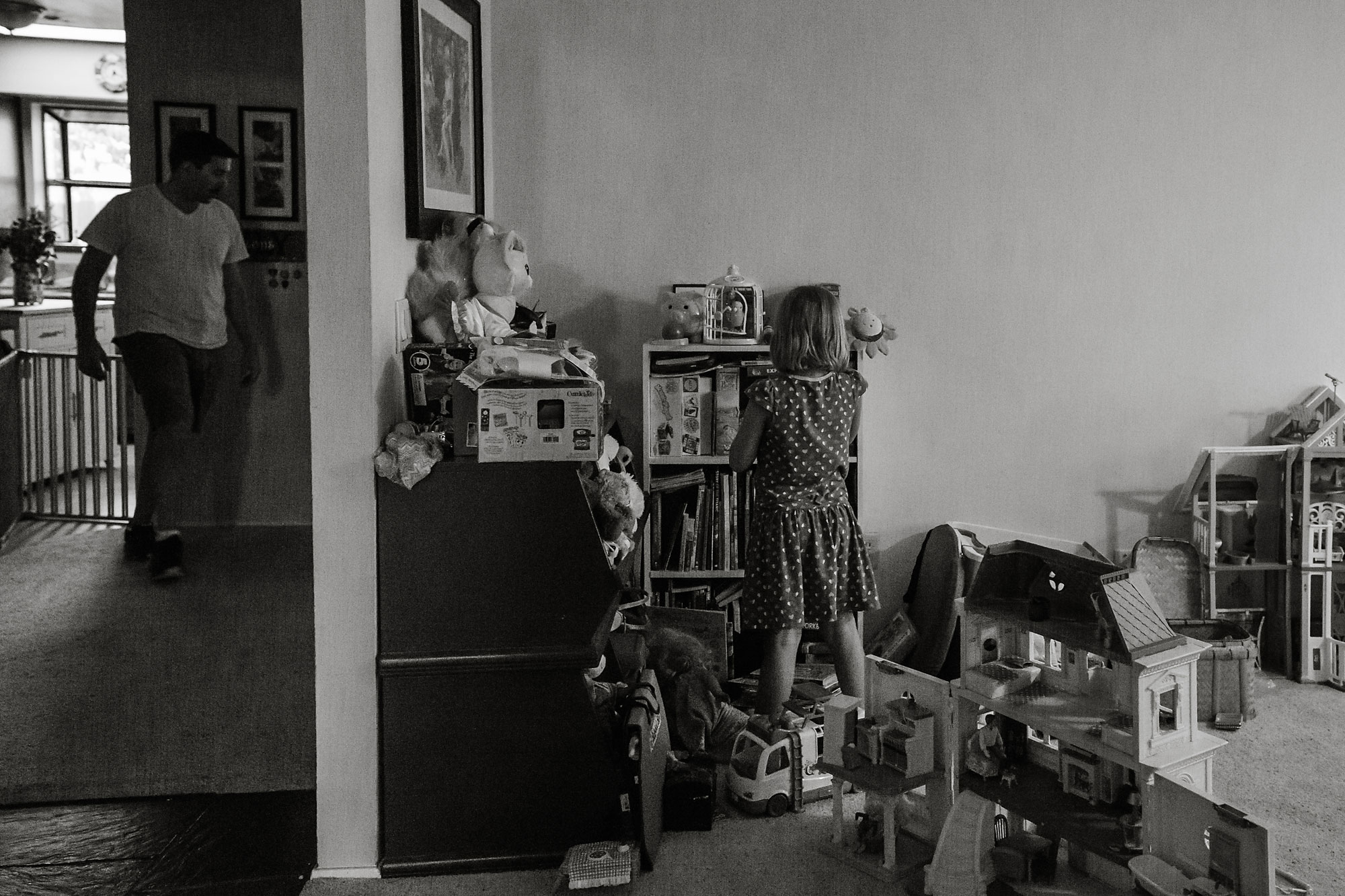
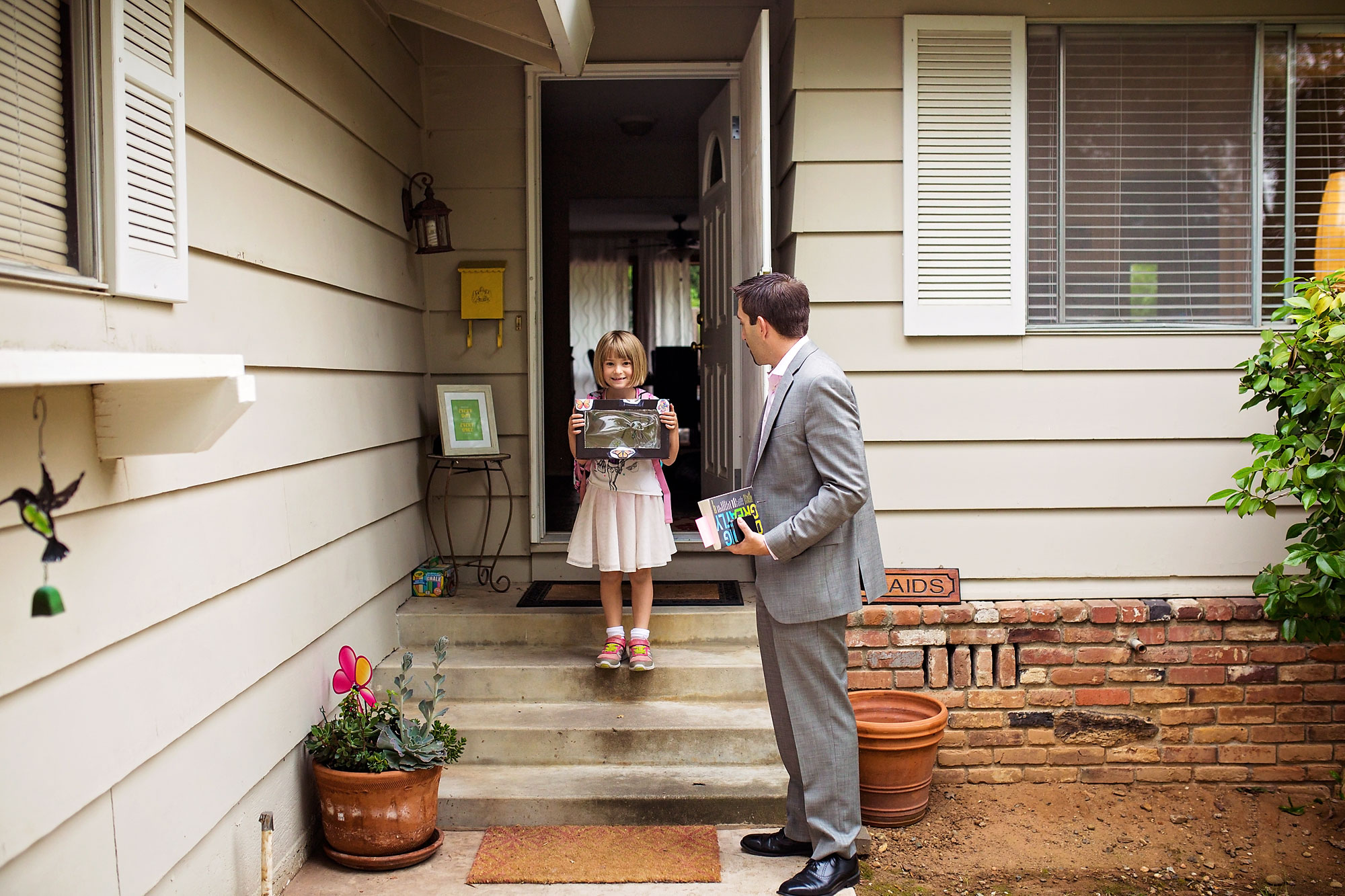
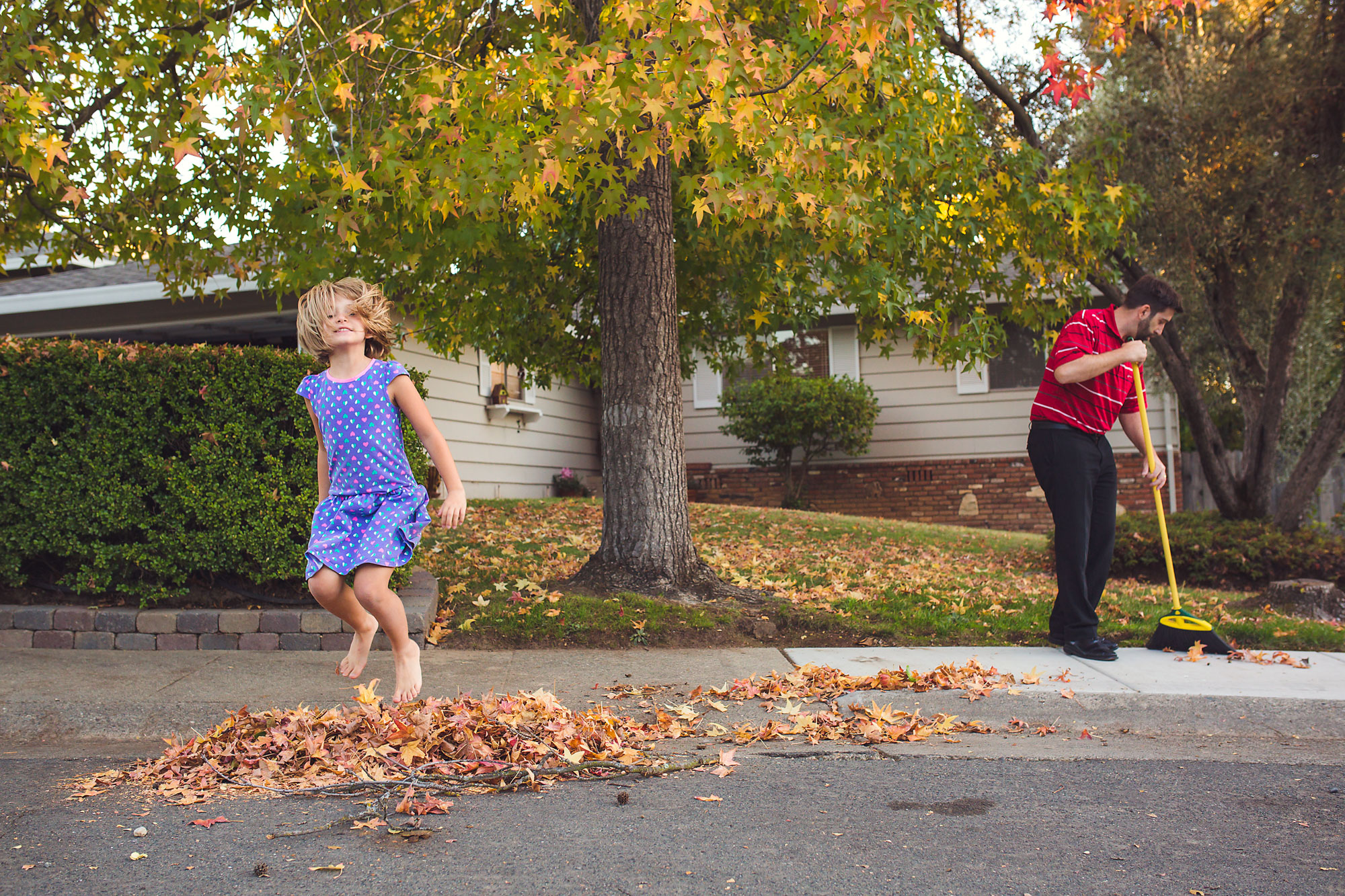
As she has grown, it has been interesting to see how the process of capturing her has changed significantly.
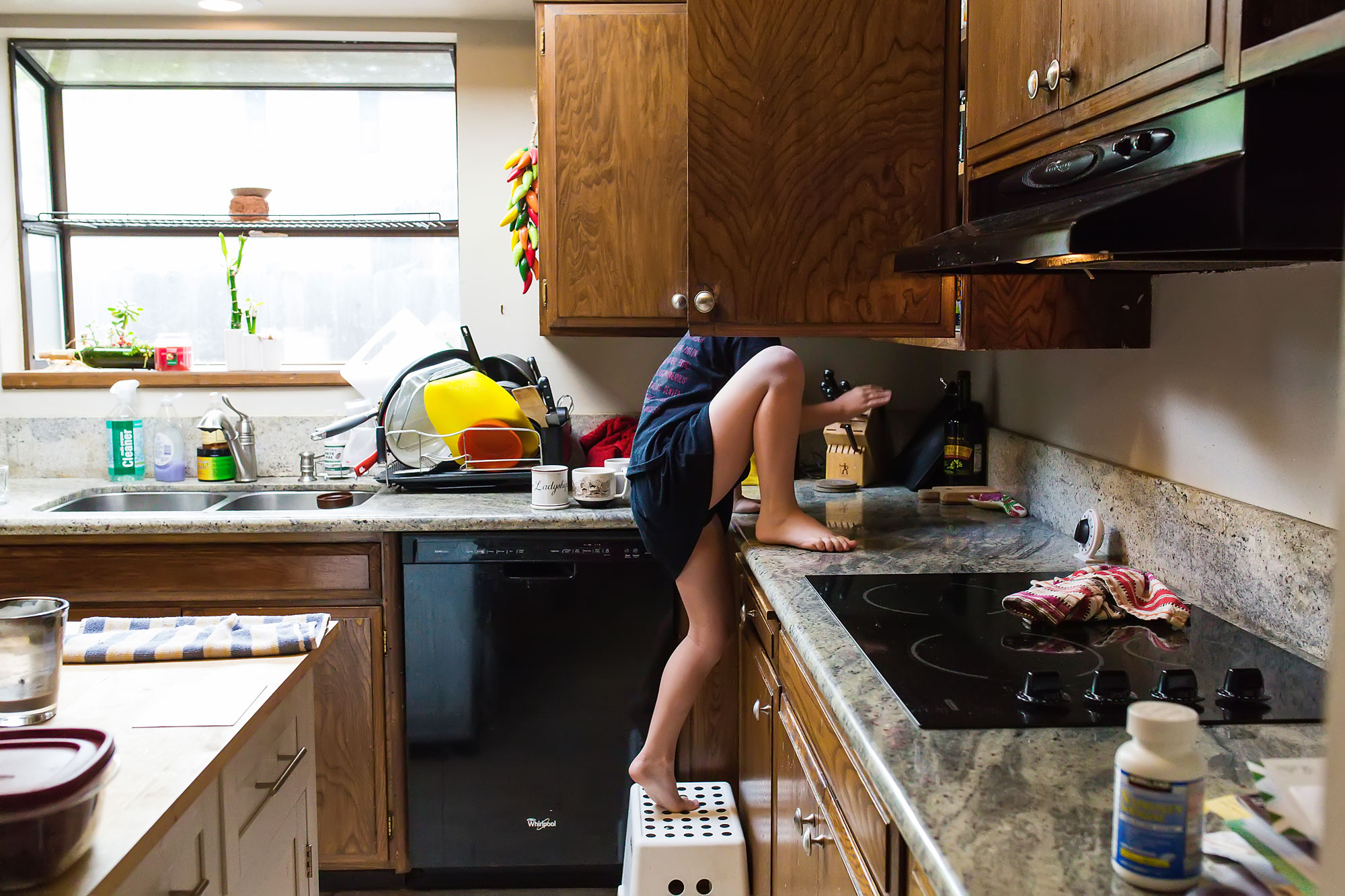
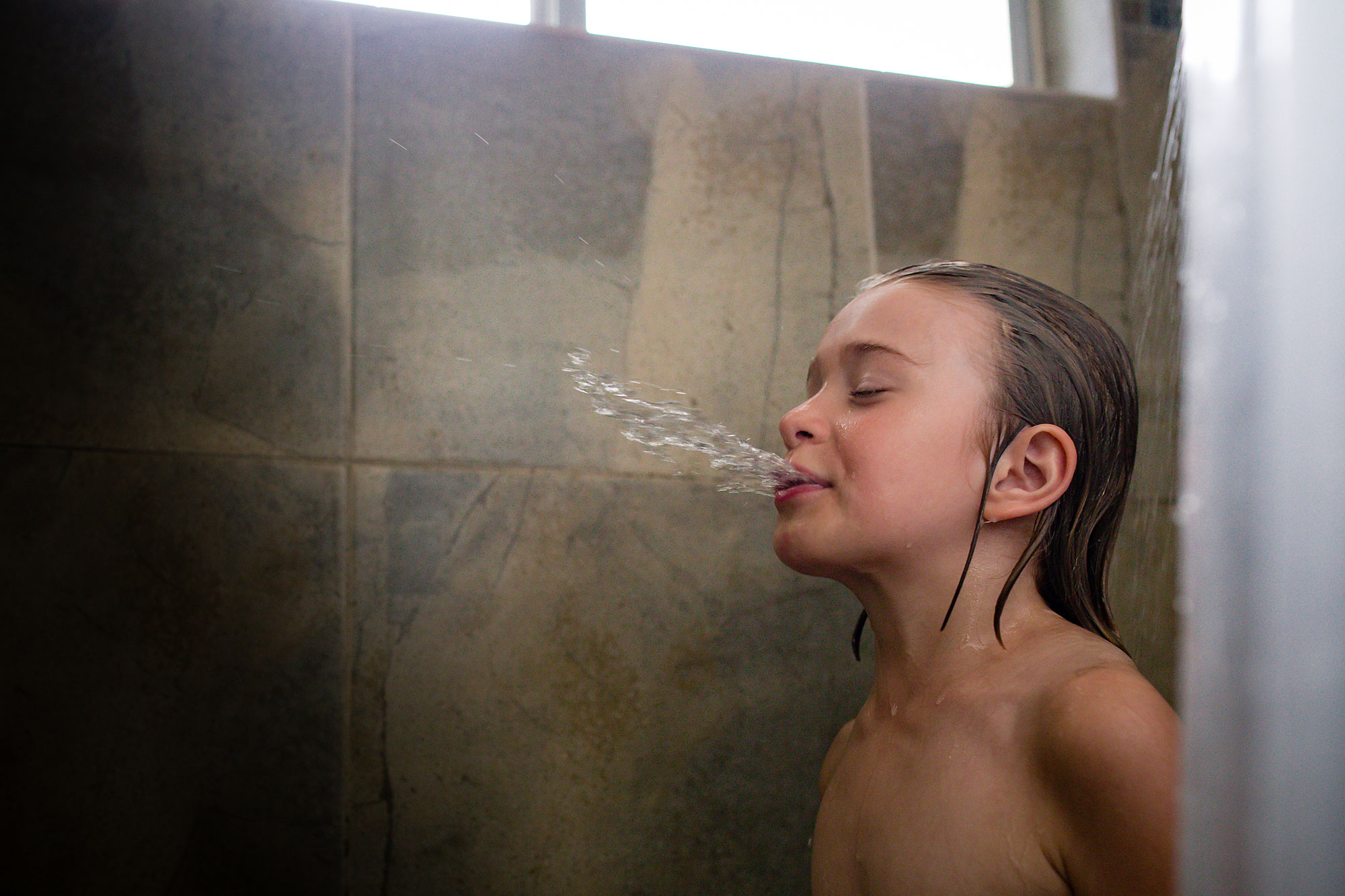
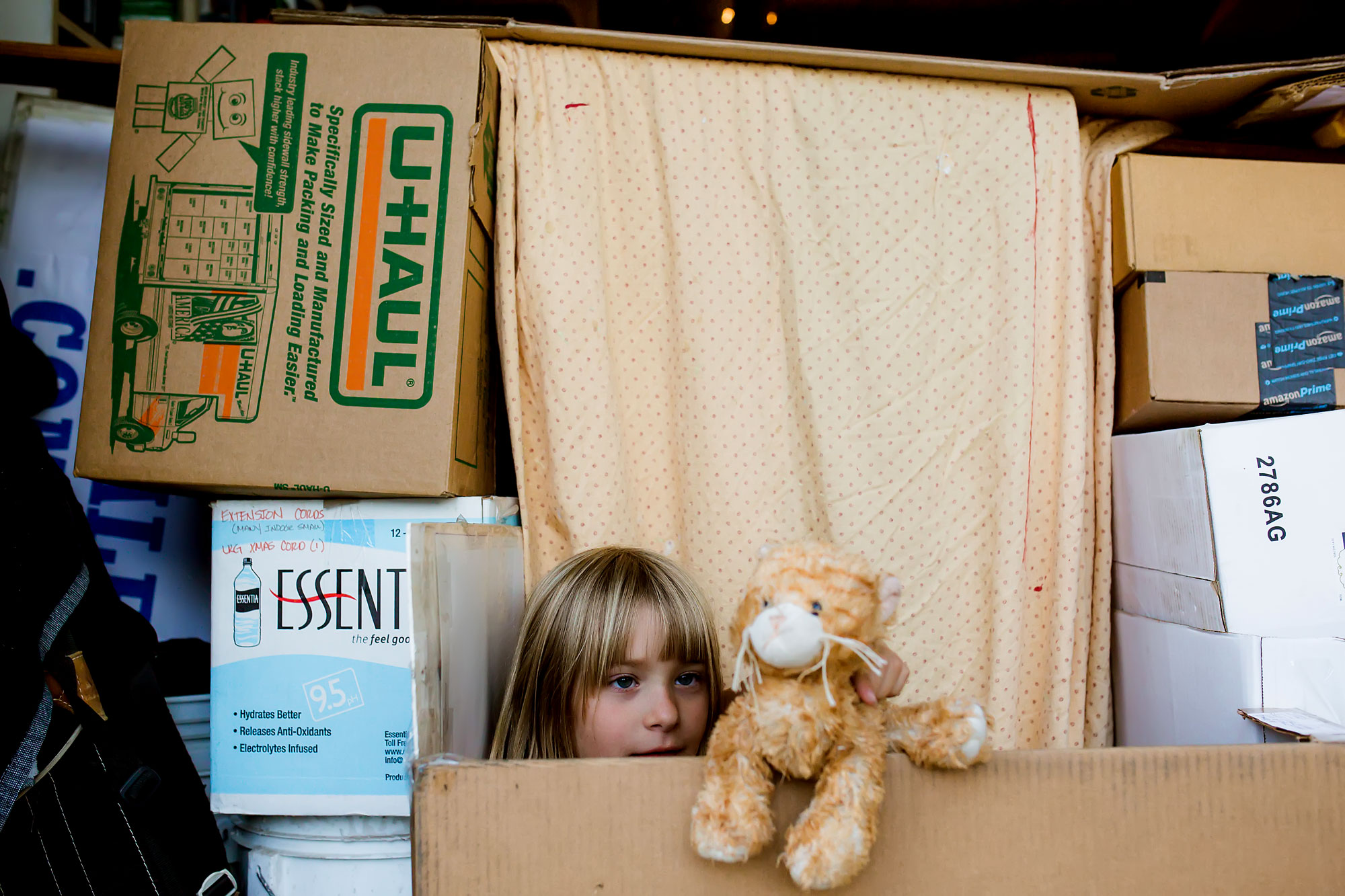
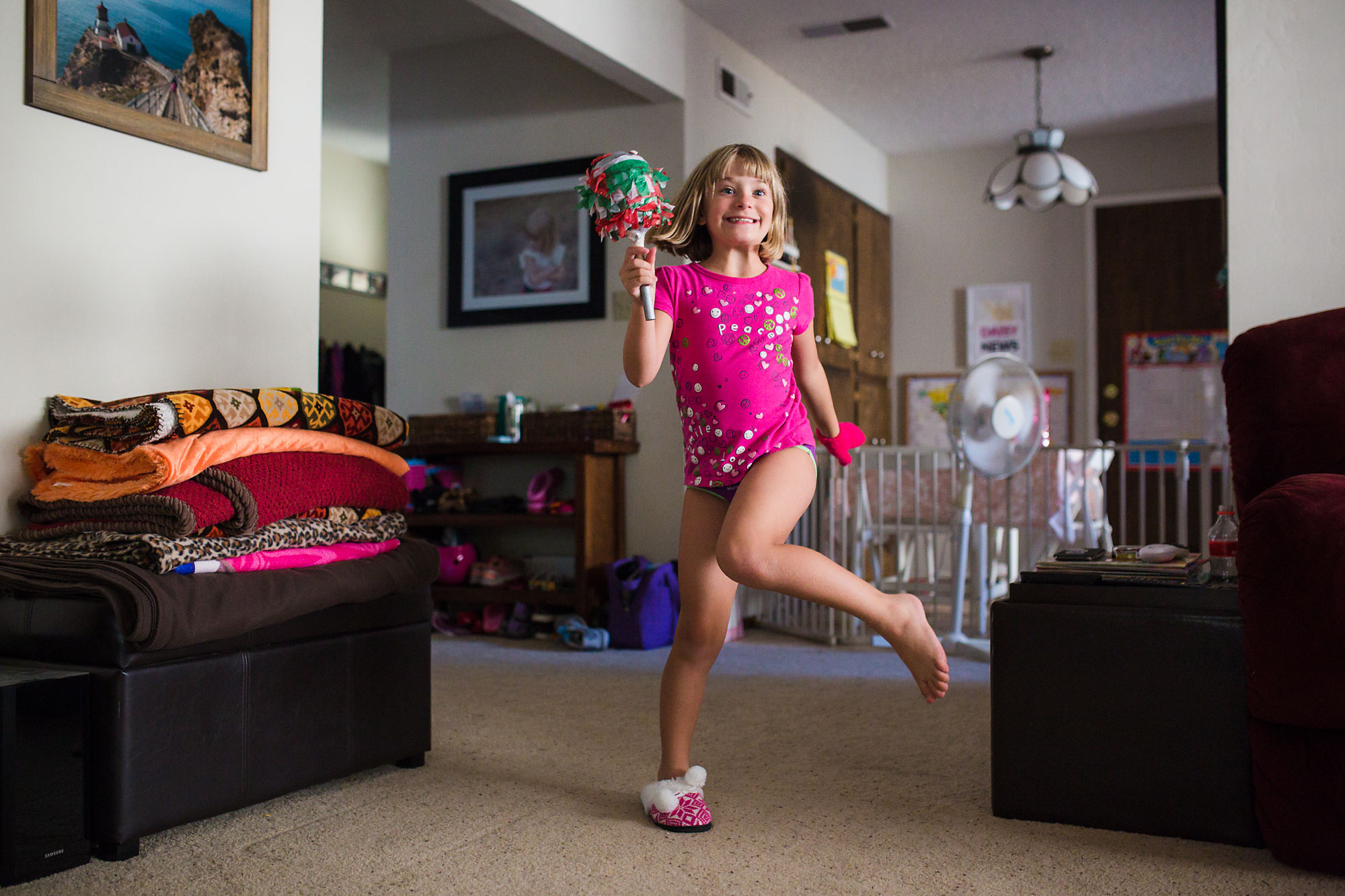
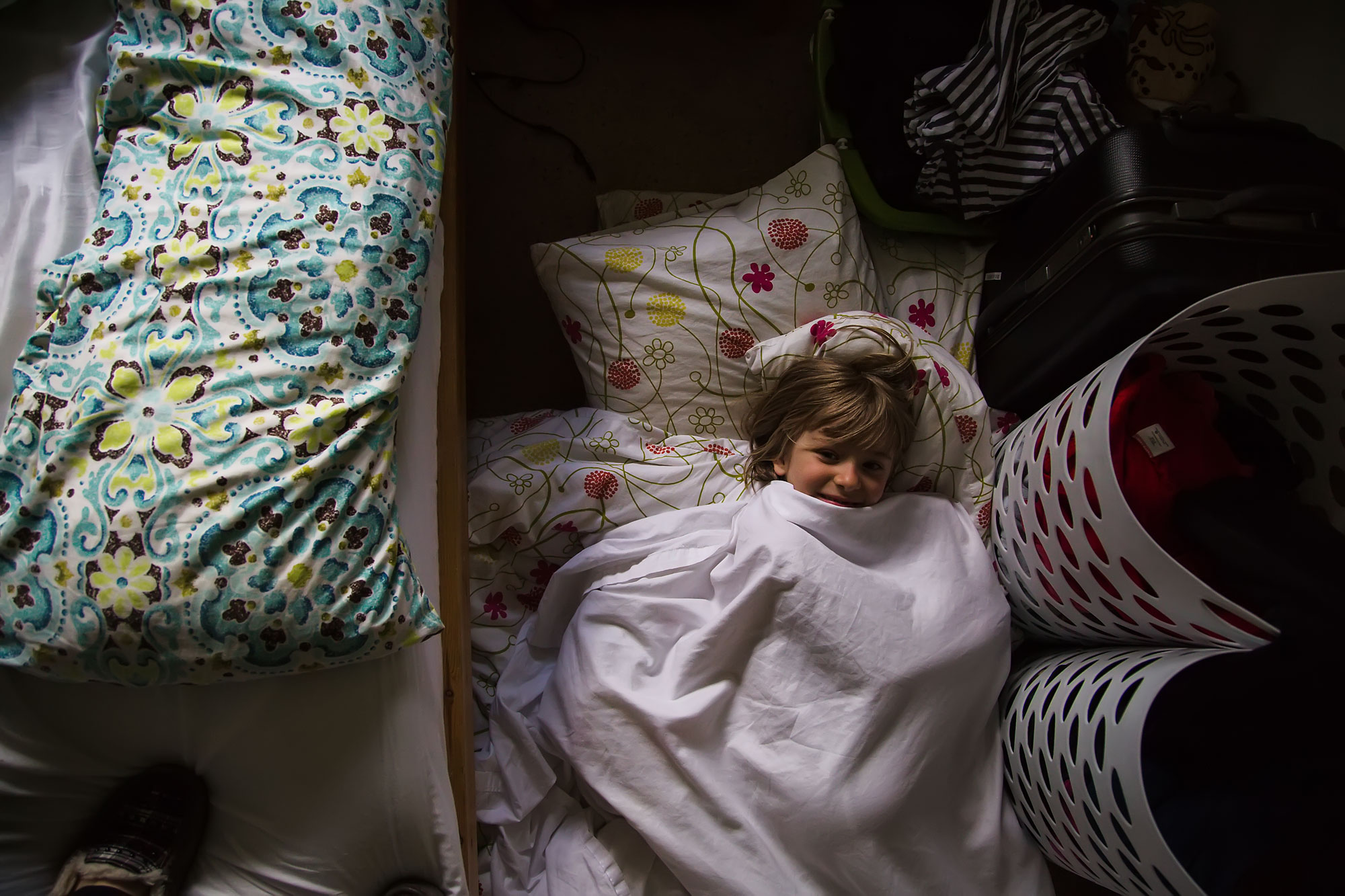
Photographing a 5-year-old meant being ready to capture something she was doing, spontaneously. Young children are always surprising us with their exploration and imagination, but moments are often fleeting and suddenly lost when the camera threatens to intrude. So, keeping the camera near me at all times, ready to grab it, was important. And capturing the moment, the expression, and her interaction with a person or place tended to be the overarching goal.
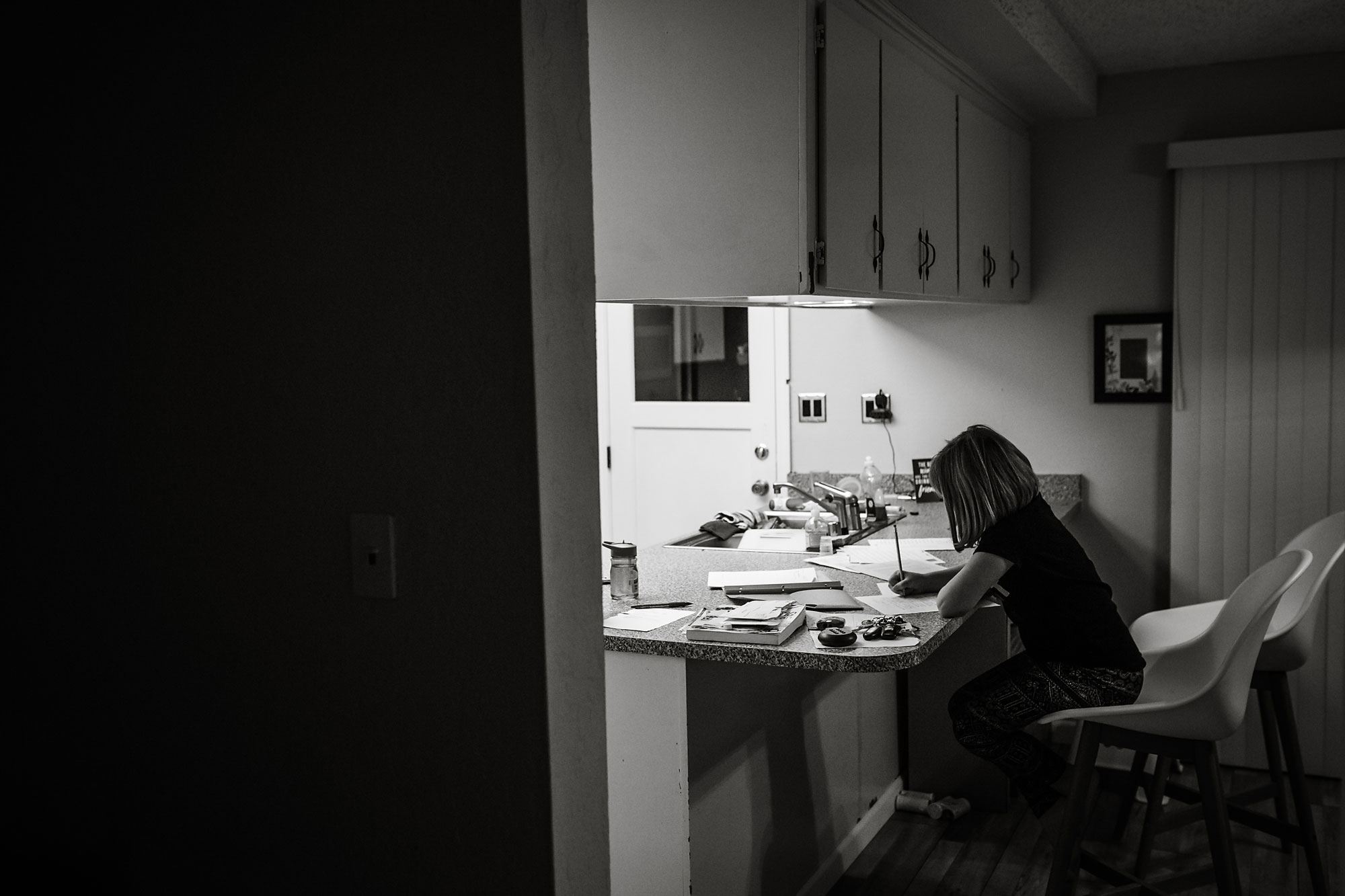
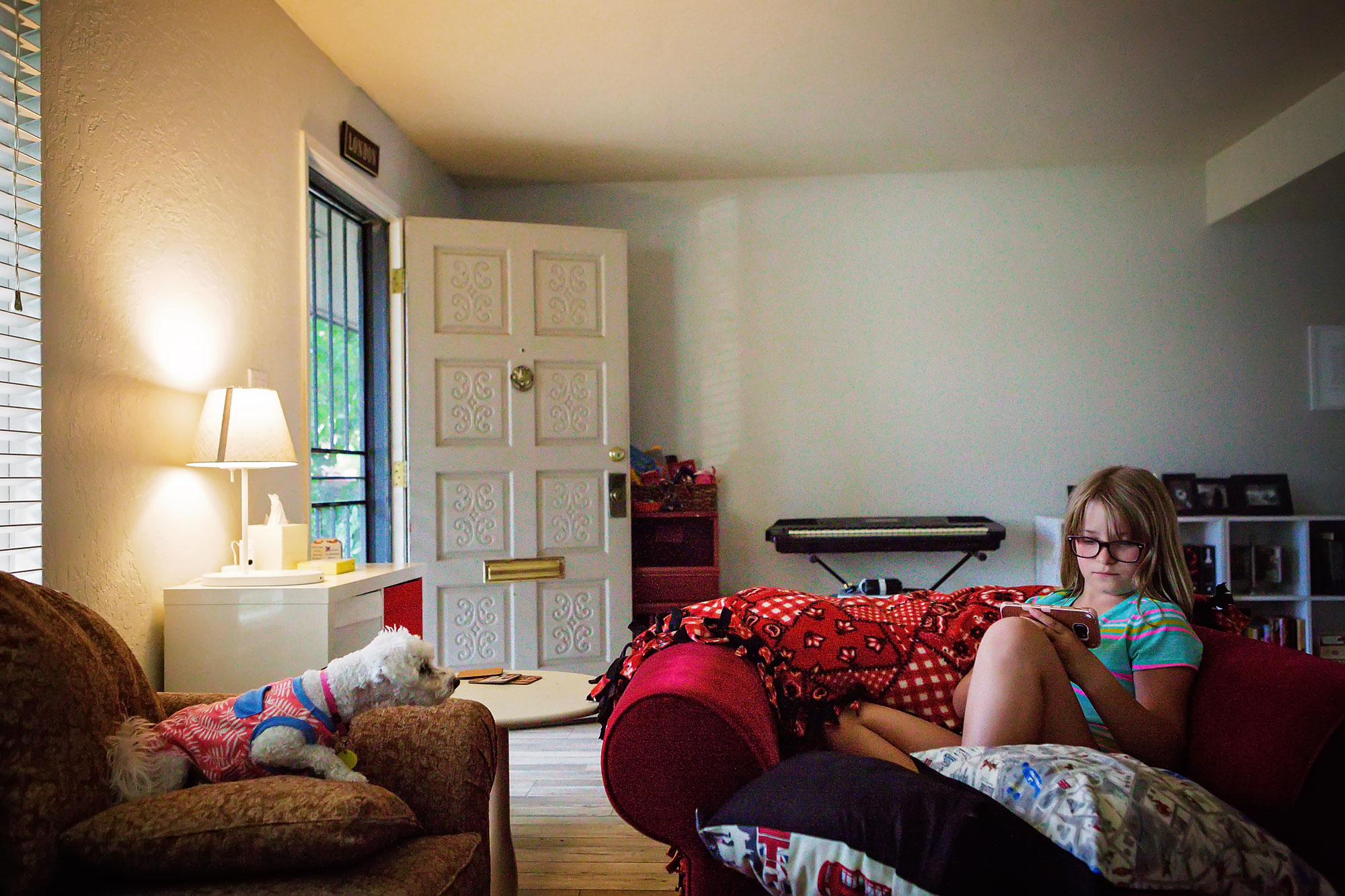
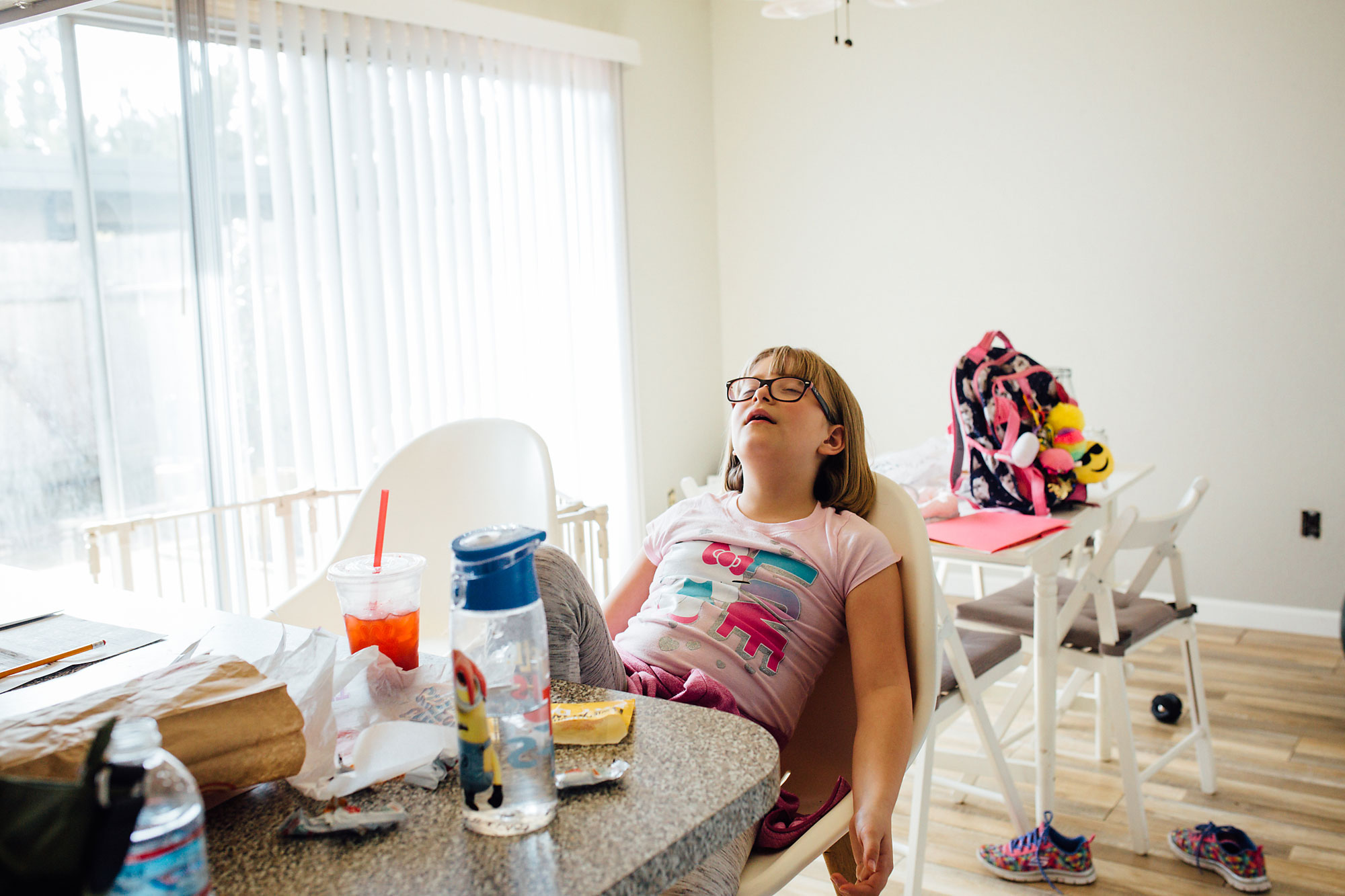
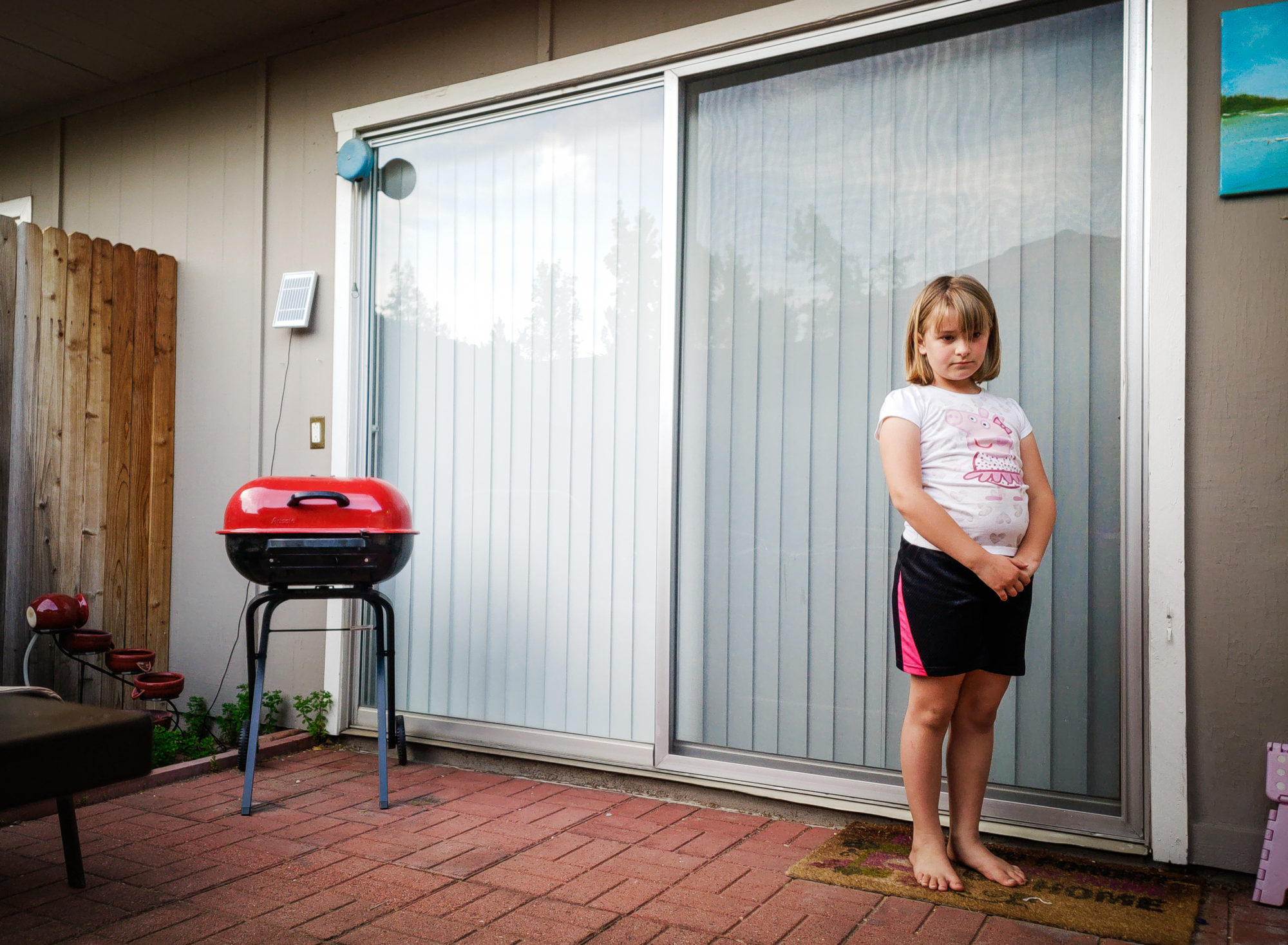
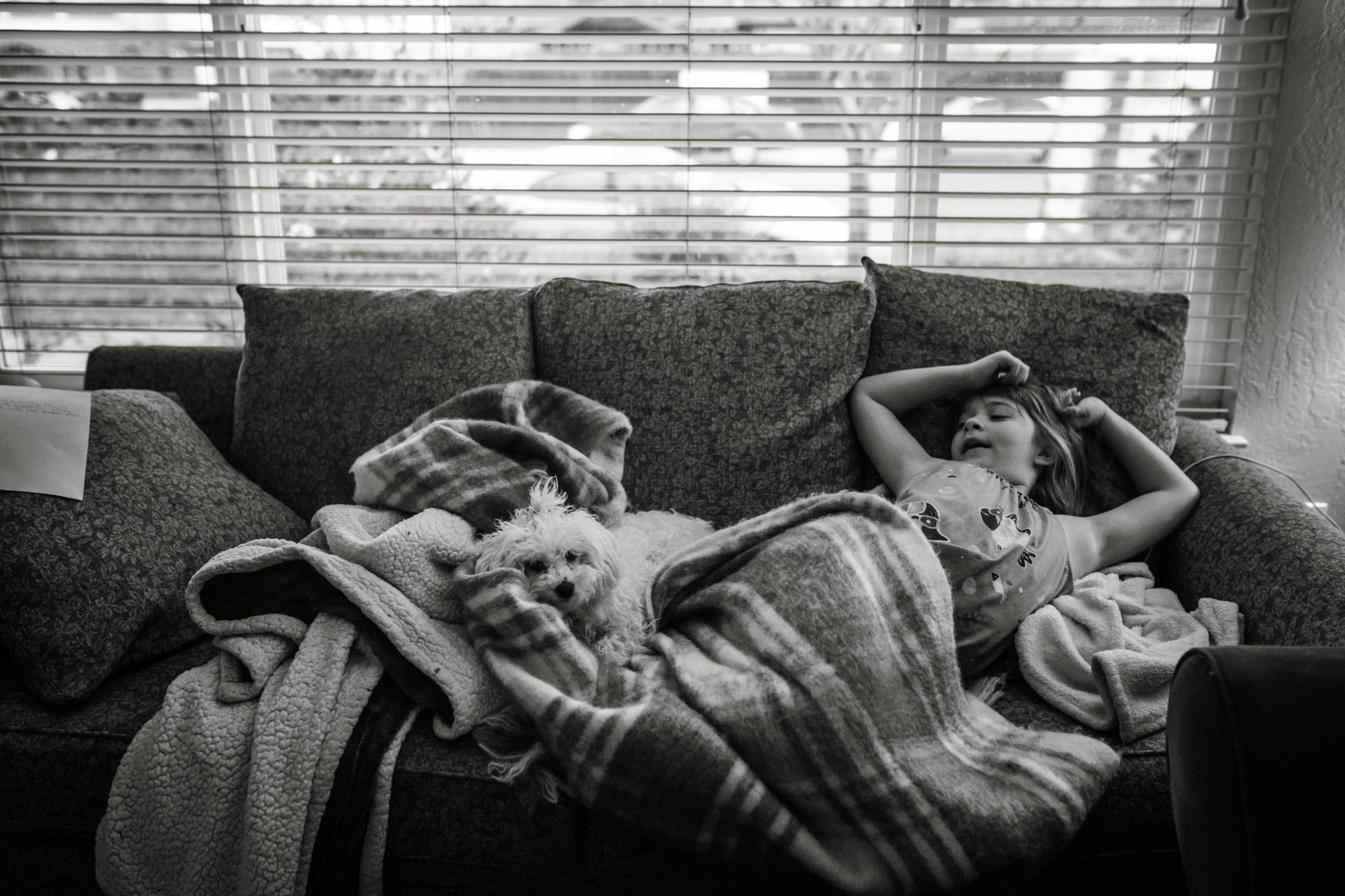
As she has grown, I find she does fewer “new” things. She’s exploring less and settling into a more predictable set of routines or habits. As a result, my photography is less spontaneous too, requiring more thought about how to capture in a new way her doing the same things, in the same places, over and over again. As an only child, this difficulty is compounded because she has no sibling interaction to draw from. Once her dad and I divorced, I also lost the ability to capture their relationship and, since we share custody, I only have her home with me 50% of the time. The challenge in the last year has been, therefore, how to photograph her in a more narrow environment, with a narrower set of circumstances, doing a narrower variety of things, in less time, and with little-to-no interaction with anybody other than me most of the time. I admit that at the end of a long work day, when I haven’t seen her for a few days, I’m not thinking about capturing her. I’m just focusing on being with her.
And yet, everything I have said above underscores the value and importance of family documentary photography. Which is remembering the small things that gain meaning and significance, sometimes, only in the rearview mirror. A moment that feels mundane and not photo-worthy now, can be the one image you cling to in just a few years.
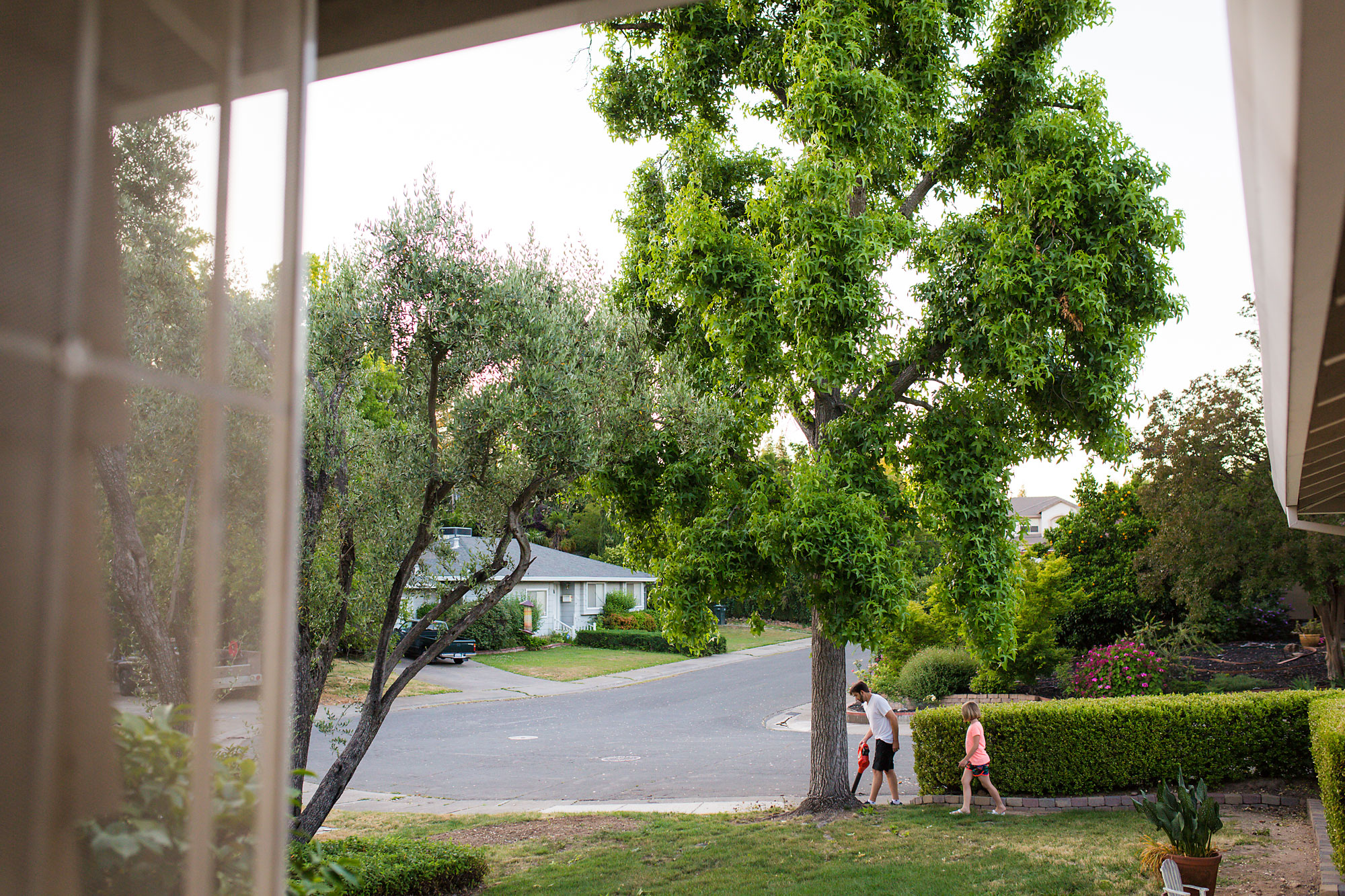
Every evening, the two of them would head out to the front yard and putter around together. I have many photos of them in the garage, the driveway, or on the front lawn. In many respects this photo is just like all the others. Except it’s not. It’s the last photo I took of them following this ritual in a house we all lived in together. The next day, we were living in separate homes. I distinctly remember standing in the doorway consciously taking this photo, tears streaming down my face, knowing it would be the last time I would get to witness this ritual. I’m not sure if I would have even thought to take it without having been a part of Sham for these last four years. Participating in this project has allowed me to see the beauty in the every day.
As for my business, Memories by Michelle, I have found it hard to sell this concept of family to moms who, understandably, want to see themselves looking beautiful in photos (No judgment). And I admit that I am not often enough in my own images to set a good example. When I do find a mom that gets it, there is nothing more I love than to spend a day capturing those sames kinds of moments in her family’s life.
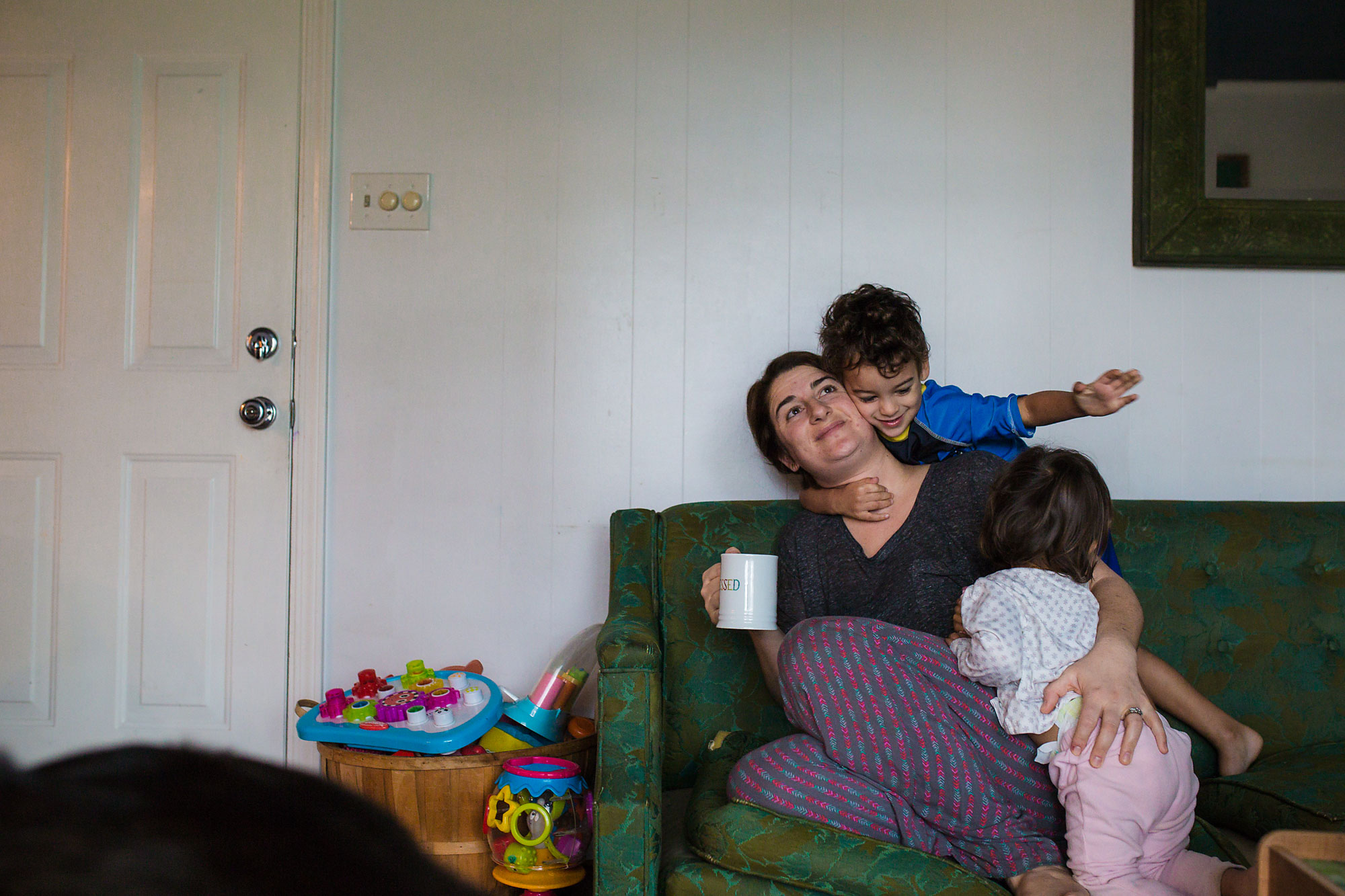
But I also find that I enjoy creating real moments in lifestyle images too. I have come to realize that for myself, as well as, for some of my clients, it’s not an either/or but an as-well-as. And I find that my documentary work creeps into those sessions.
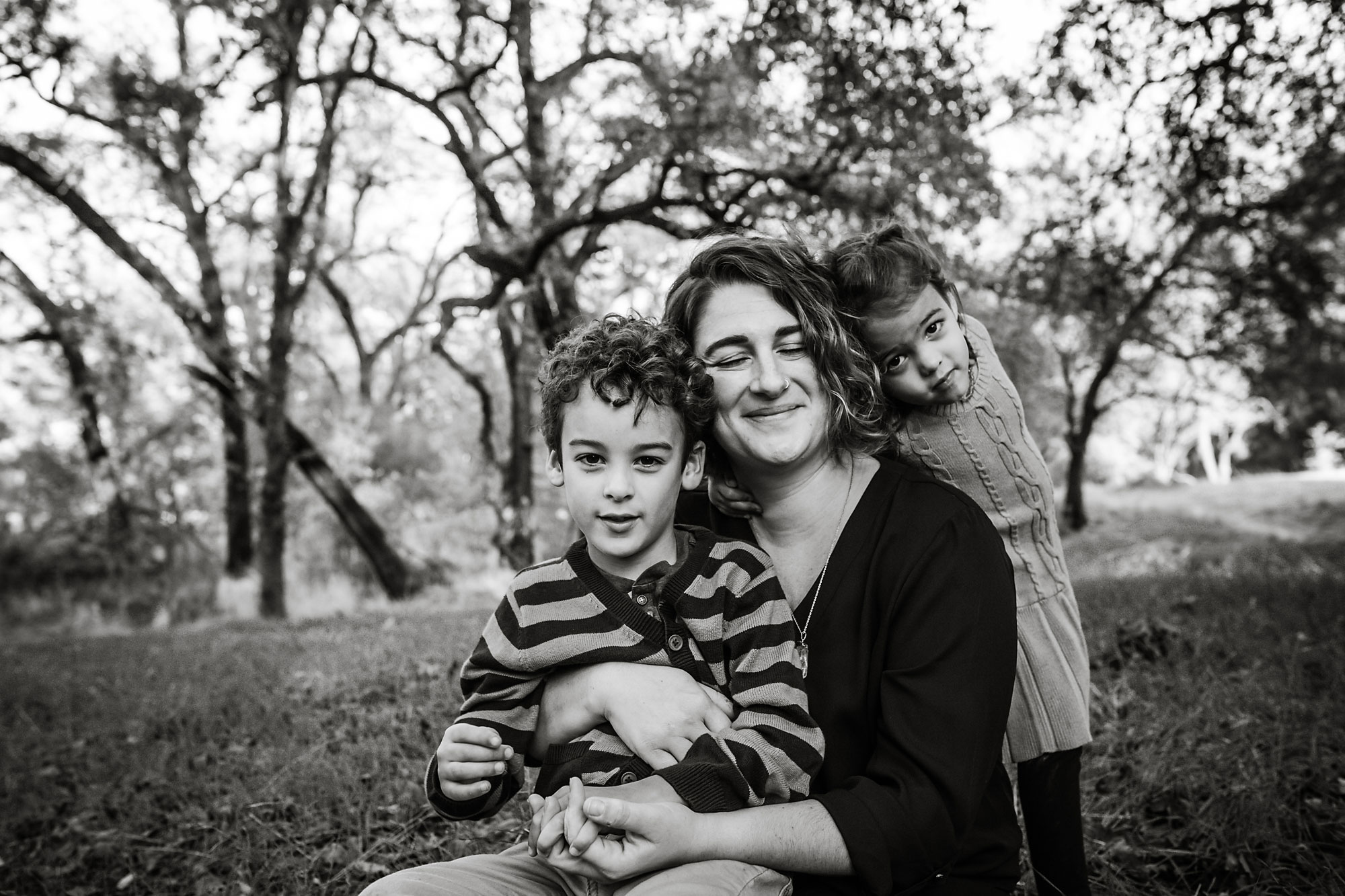
What Sham of the Perfect has given me is an appreciation for the imperfect moments, a desire to capture layers both within the physical image and in meaning, and a confidence to shoot in almost any situation with any light and any subjects. Documentary photography requires you think on your feet and find art where others see ordinary. Wherever my photography journey takes me next, these are skills I’ll take with me.
Changes define life in many ways, and while some are bittersweet, they are something that is in the long term impossible to avoid. You seem to have made the best of it. Your work is beautiful and tender, and a joy to look at. I am sure that one day your daughter will look around amongst her friends and see that not everyone’s life was so well documented. I shoot my grandson every single day. There are four photos of me from age four to fourteen that aren’t school photos, and he will not suffer that fate.